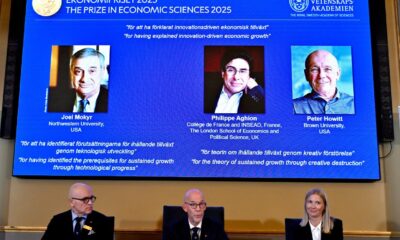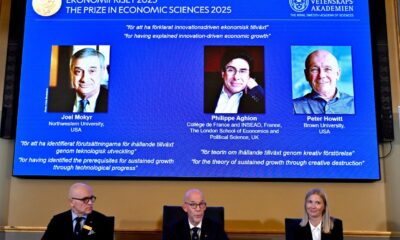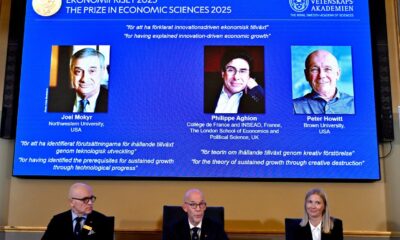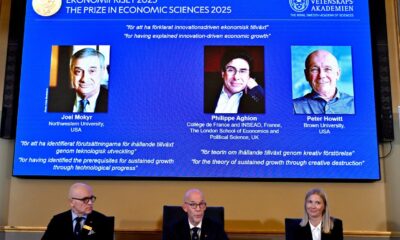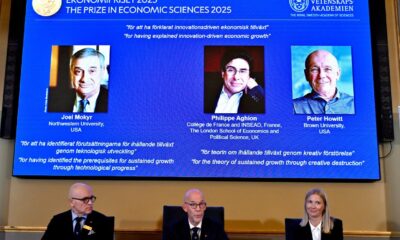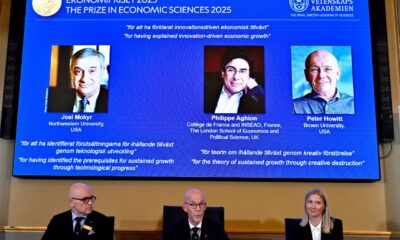Science
Three Economists Win Nobel for Insights on Creative Destruction
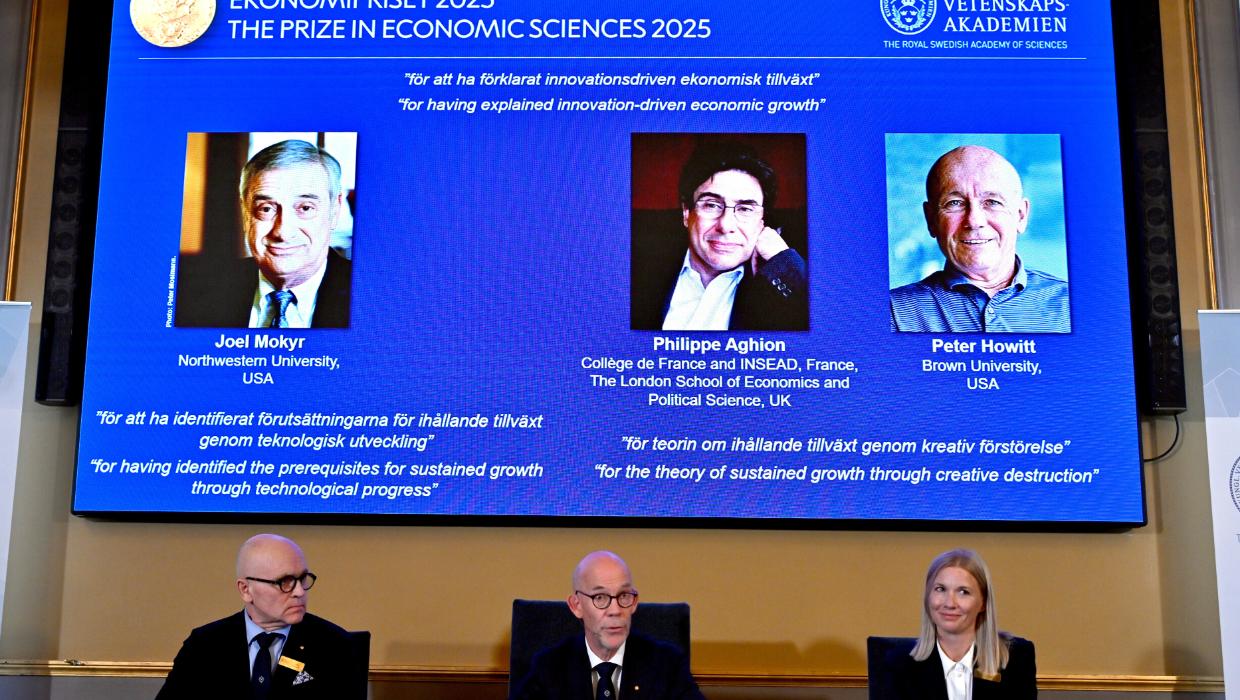
Three economists were awarded the prestigious Nobel Memorial Prize in Economic Sciences on March 10, 2024, for their groundbreaking research on the dynamics of business innovation. The recipients, Joel Mokyr, Philippe Aghion, and Peter Howitt, have significantly advanced the understanding of how new products and technologies foster economic growth while simultaneously displacing older businesses.
The concept of “creative destruction,” which describes the continual process of innovation replacing outdated technologies, has been a fundamental aspect of economic theory since it was first articulated by economist Joseph Schumpeter in his 1942 book, “Capitalism, Socialism and Democracy.” The Nobel committee recognized Mokyr, Aghion, and Howitt for their contributions that help clarify the mechanisms behind this concept, illustrating its importance in driving growth and enhancing human welfare.
Innovating for Growth
The Nobel committee highlighted Mokyr’s assertion that understanding innovation requires not just acknowledging what works, but also explaining why it succeeds. His research emphasizes the need for scientific explanations to support the self-generating processes of innovation.
Aghion and Howitt’s contributions include a 1992 publication that introduced a sophisticated mathematical model of creative destruction, which added new dimensions to previous theories. They identified that markets dominated by a few large firms can stifle innovation, a concern particularly relevant in industries such as telecommunications and social media.
In a statement, John Hassler, chair of the Nobel committee, remarked, “The laureates’ work shows that economic growth cannot be taken for granted. We must uphold the mechanisms that underlie creative destruction to avoid stagnation.” The researchers advocate for policies that not only assist those adversely affected by innovation but also promote social mobility and access to new opportunities.
Reflections on Technological Change
Mokyr, known for his optimistic view of technological progress, has countered the notion that recent innovations like smartphones have had a lesser economic impact than earlier inventions. He argued that many new services, despite being inexpensive or free, yield tremendous benefits that remain underappreciated in economic data.
“The notion that AI is a ‘monstrosity’ that will drive humans into extinction comes from people who have read too much dystopian fiction,” Mokyr stated during a recent news conference. “They move us to more interesting, more challenging work.”
As the global economy stands at a crossroads, the insights from these laureates resonate strongly, particularly in Europe, where there are concerns over falling behind the United States and China in terms of innovation. Aghion stressed the urgent need for Europe to foster research and encourage venture capital to transform ideas into viable businesses.
“We have to wake up,” Aghion remarked, underscoring the competitive nature of global innovation. “Those who innovate will ultimately succeed.”
The prize, amounting to 11 million Swedish kronor (approximately $2.02 million), is divided with Mokyr receiving half and Aghion and Howitt sharing the remainder. In addition to the monetary award, the laureates will receive an 18-carat gold medal and a diploma, celebrating their significant contributions to the field of economics.
As the world continues to grapple with the implications of rapid technological change, the work of Mokyr, Aghion, and Howitt offers valuable perspectives on sustaining economic growth through innovation while addressing the challenges that accompany such transformations. Their research underscores the necessity of adapting societal structures to support a dynamic and evolving economy.
-

 World6 days ago
World6 days agoPrivate Funeral Held for Dean Field and His Three Children
-

 Top Stories1 week ago
Top Stories1 week agoFuneral Planned for Field Siblings After Tragic House Fire
-

 Sports3 months ago
Sports3 months agoNetball New Zealand Stands Down Dame Noeline Taurua for Series
-

 Entertainment3 months ago
Entertainment3 months agoTributes Pour In for Lachlan Rofe, Reality Star, Dead at 47
-

 Entertainment2 months ago
Entertainment2 months agoNew ‘Maverick’ Chaser Joins Beat the Chasers Season Finale
-

 Sports3 months ago
Sports3 months agoSilver Ferns Legend Laura Langman Criticizes Team’s Attitude
-

 Sports4 weeks ago
Sports4 weeks agoEli Katoa Rushed to Hospital After Sideline Incident During Match
-

 Politics2 months ago
Politics2 months agoNetball NZ Calls for Respect Amid Dame Taurua’s Standoff
-

 World2 weeks ago
World2 weeks agoInvestigation Underway in Tragic Sanson House Fire Involving Family
-

 Entertainment3 months ago
Entertainment3 months agoKhloe Kardashian Embraces Innovative Stem Cell Therapy in Mexico
-

 Sports4 weeks ago
Sports4 weeks agoJamie Melham Triumphs Over Husband Ben in Melbourne Cup Victory
-

 World4 months ago
World4 months agoPolice Arrest Multiple Individuals During Funeral for Zain Taikato-Fox

